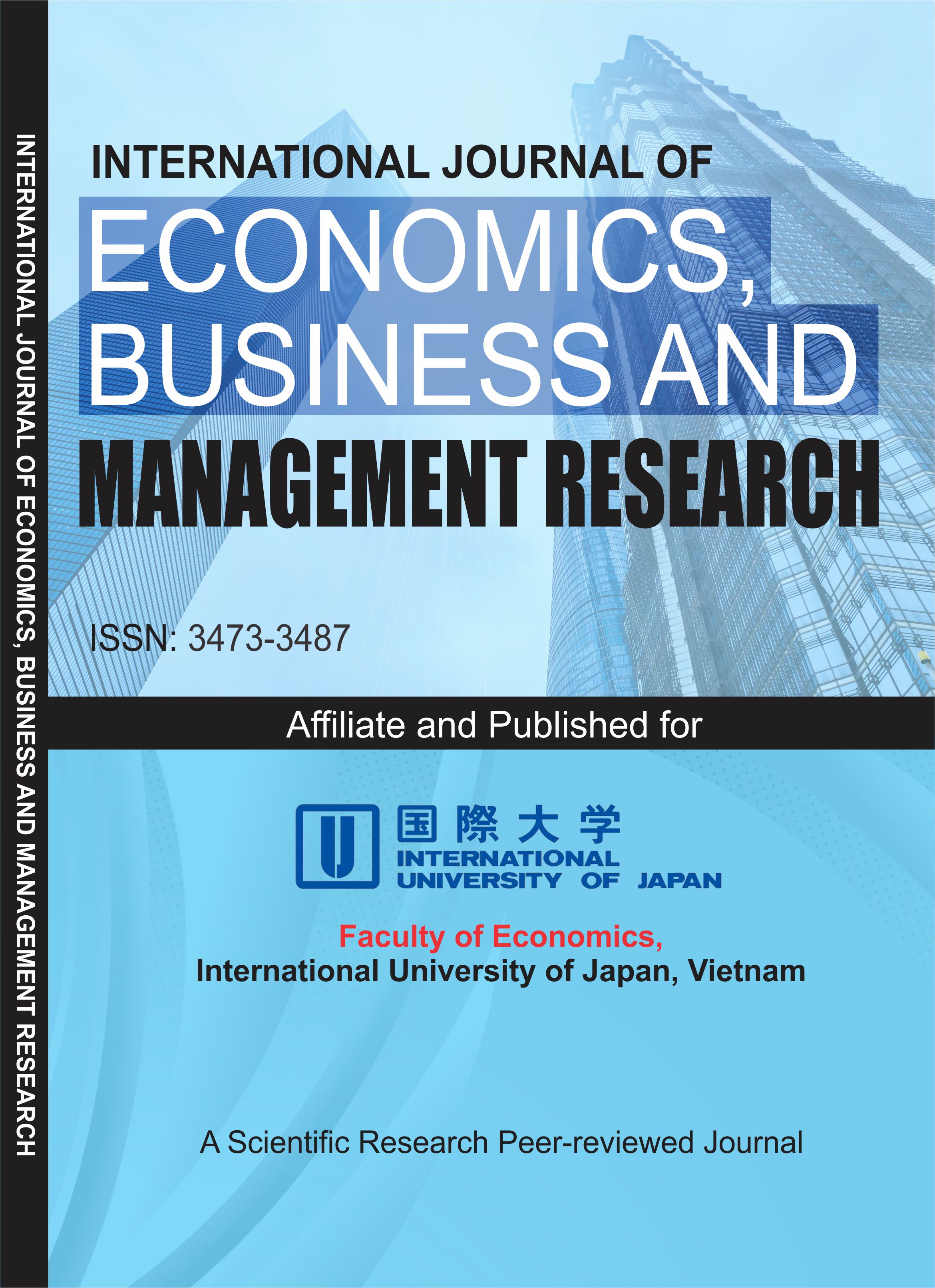INTERNATIONAL JOURNAL OF ECONOMICS, BUSINESS AND MANAGEMENT RESEARCH (IJEBMR)
MANAGING E-INVESTMENTS FOR SUSTAINABLE RETURNS: EXPLORING OPTIONS, RISKS, AND STRATEGIC DIRECTIONS
E-ISSN: 5457-5677
P-ISSN: 3473-3487
DOI: https://iigdpublishers.com/article/681
The integration of sustainability considerations into e-investment management has gained significant attention in recent years. This study explores the options, risks and way forward for einvestment management and sustainable investment returns by conducting a comprehensive review of existing literature and empirical analysis of e-investment options and platforms. A survey research design was adopted with the population of the study consisting of 1,894 einvestors from 4 e-investment platforms. The Taro Yamane approach was adopted for sample size determination which yielded 330 respondents from 4 e-investment platforms with the adoption of simple random sampling technique. Data were collected using structured e-questionnaires. Descriptive analysis and ESG risk assessment framework (Risk scoring and prioritization) were adopted as the procedures for data analysis. Evidence from this study reveals that e-stocks and bonds offer a balance of moderate returns, moderate ESG risks, and high regulation. Mutual funds/Exchange-Traded Funds (ETFs) provide low Environmental Social Governance (ESG) risks, stable returns, and moderate to high regulation. E-Banking products offer low ESG risks, low returns, and high regulation, while currency trading presents high ESG risks, high returns, and low regulation. However, challenges such as lack of transparency, standardization, and regulatory frameworks hinder the widespread adoption of sustainable e-investment practices. The findings contribute to the development of a more sustainable and responsible e-investment management, ultimately enhancing the sustainability of returns for investors and promoting a more sustainable financial system. This study, thus, concludes that regulations and ESG considerations are crucial for minimizing risks while maximizing returns in e-investment management. It is therefore recommended that investors and regulators prioritize ESG considerations and regulatory oversight to promote sustainable investment practices.
Iliemena-ifeanyi Rachael Okwudili PhD, Amedu Michael Jimoh PhD & Goodluck Happiness Chibuzor PhD
Ahmed, S., Khan, M.Y., & Kumar, S. (2023). Assessing the sustainability of e-investments: A systematic review. Journal of Sustainable Finance & Investments, 13(1), 1 – 20.
Batten, J. (2016). Environmental, social and governance (ESG) factors and stock returns: A literature review. Journal of Sustainable Finance & Investment, 6(2), 137 – 156. https://www.tandfonline.com/doi/full/10.1080/20430795.2016.1162000
Benson, K.L., & Humphrey, J.E. (2018). Do mutual funds and ETFs improve ESG outcomes? Journal of Banking & Finance, 97, 105 – 115. https://www.sciencedirect.com/science/article/pii/S0378426618301513
Chen, Y., Wang, Y., & Li, Z. (2021). The impact of e-investment on sustainable development: A systematic review. Journal of Cleaner Production, 288, 120821.
Chen, J., & Zhang, L. (2023). Assessing cryptocurrency investment risks: A Monte Carlo simulation approach. Journal of Digital Finance, 9(1), 47-61. https://doi.org/10.1080/15320520.2023.1851685
